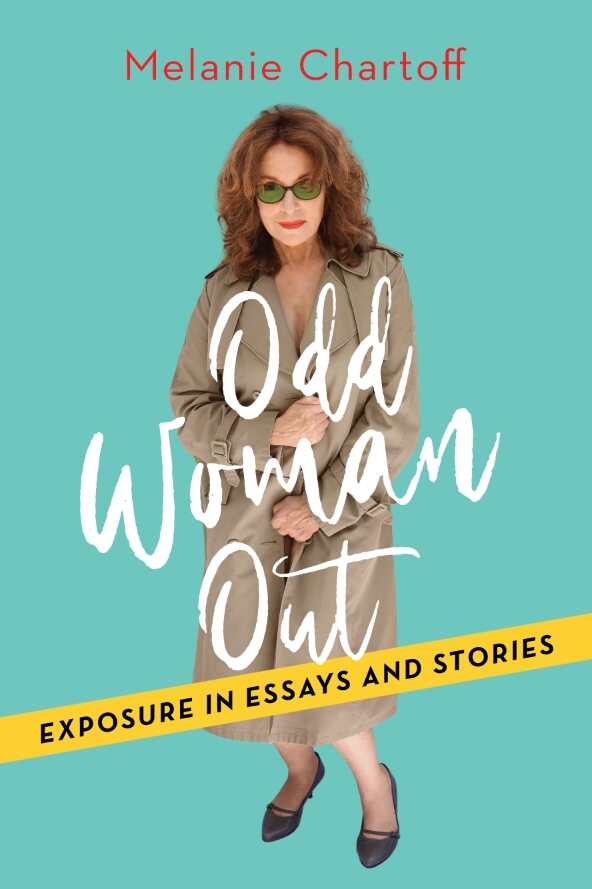Odd Woman Out
Exposure in Essays and Stories
Odd Woman Out is a celebratory memoir in which the underside of fame is addressed with humor and wisdom.
Actress and comedian Melanie Chartoff discusses her real-life search for serious love in Odd Woman Out.
Growing up in New Haven, Connecticut, Chartoff rebelled against her family’s dysfunctional attempts at staying intact by going it alone. Pursuing acting as a singular goal, she forewent marriage and kids, but still craved the attention and companionship of men. The struggle to balance her love life with her burgeoning career became harder as her fame grew. Facing menopause, she tried a new way to date, only to discover that she was no longer the odd one out, but a woman in love.
Made up of essays and stories that come together as a cogent record of Chartoff’s relationships with men and with herself, the book is, in the vein of Chartoff’s career, anecdotal and funny. Kooky people, including a man with fake chest hair, a master comedian, an awkward farmer, and a science fiction musical director populate its slapstick incidents, as with Chartoff playing a trick with her fan mail. Those close to her, including her parents, are more tragic figures who exist in stark contrast to the people she meets. Always among strong personalities, Chartoff is seen struggling to find her voice.
The book’s language is playful. It makes use of alliterations and original words, like “cathartsis,” meaning catharsis through art. These habits conjure Chartoff’s exuberance for her crafts. So determined is her exuberance that she sacrifices her own comfort: she opens her expensive but tiny New York apartment to a down-and-out performer, hoping for rent help, but gets a desperate lover instead. An exchange at the end of the sequence reveals the time and energy required to confront him with a definitive “get out.”
Though its tone is psychologically vulnerable and confessional, the book’s pacing is frantic, mimicking the many obstacles Chartoff overcame to find her voice. Its first chapter is set in the present, during a panicked gynecological exam, but others also center around crises, reflecting both Chartoff’s mounting anxiety and desire to find solace. Toward the end, grief prevails, and the chapters become jumbled. The book’s late stream-of-consciousness style conflates time and space and becomes self-referential and introspective as Chartoff learns to work with, not against, her lover and herself to find balance. The slow conclusion focuses on, and is hopeful for, the future.
Odd Woman Out is a celebratory memoir in which the underside of fame is addressed with humor and wisdom.
Reviewed by
Mari Carlson
Disclosure: This article is not an endorsement, but a review. The publisher of this book provided free copies of the book and paid a small fee to have their book reviewed by a professional reviewer. Foreword Reviews and Clarion Reviews make no guarantee that the publisher will receive a positive review. Foreword Magazine, Inc. is disclosing this in accordance with the Federal Trade Commission’s 16 CFR, Part 255.

